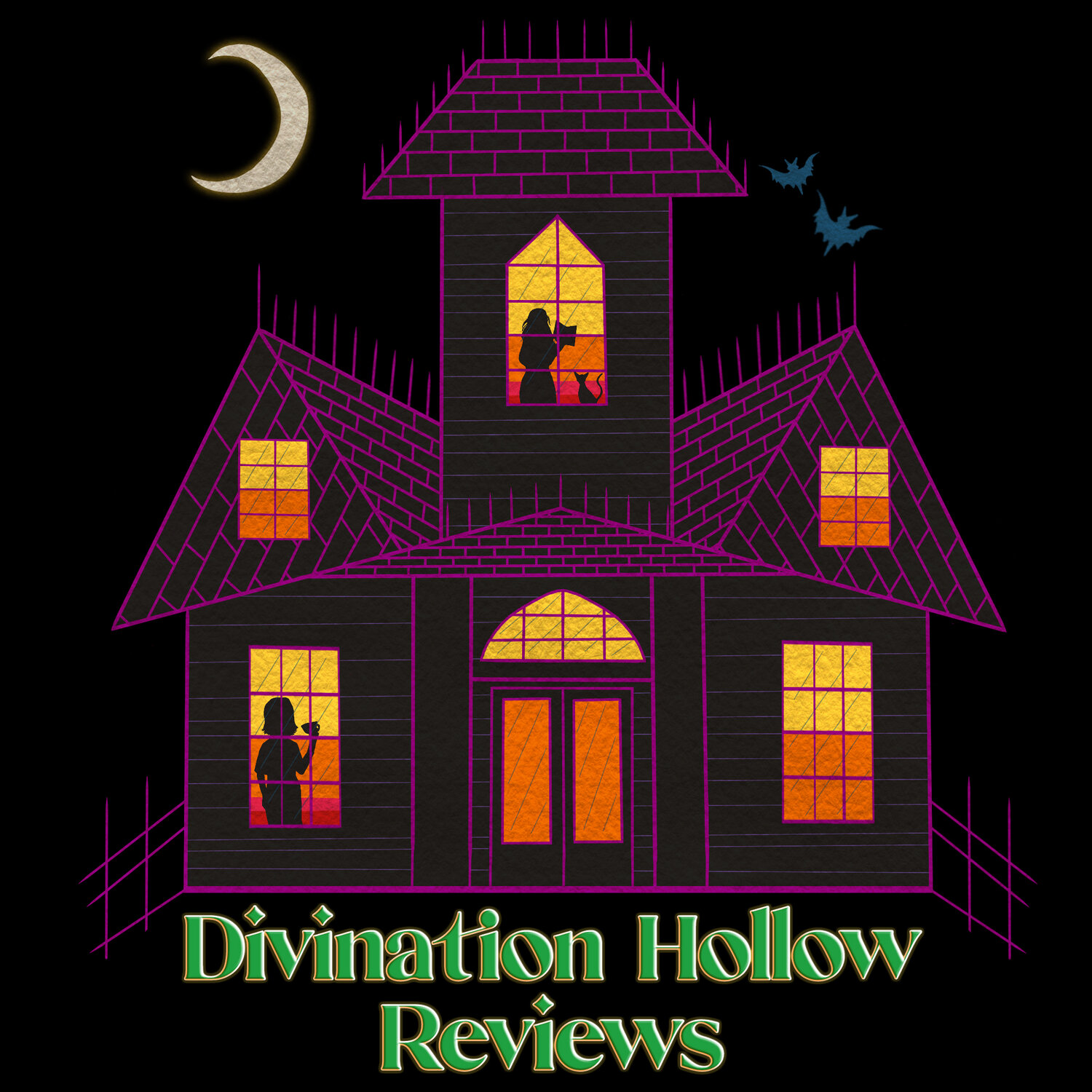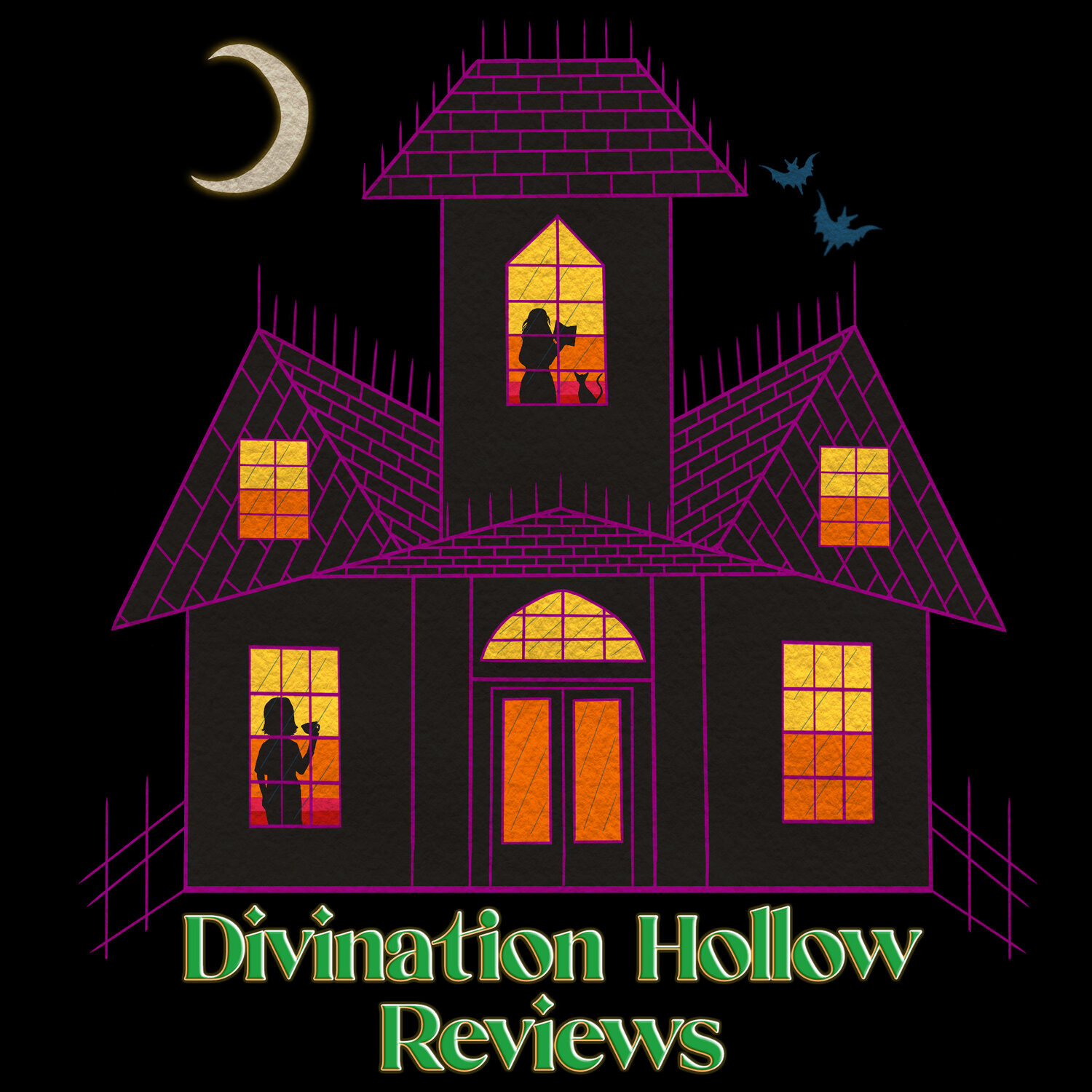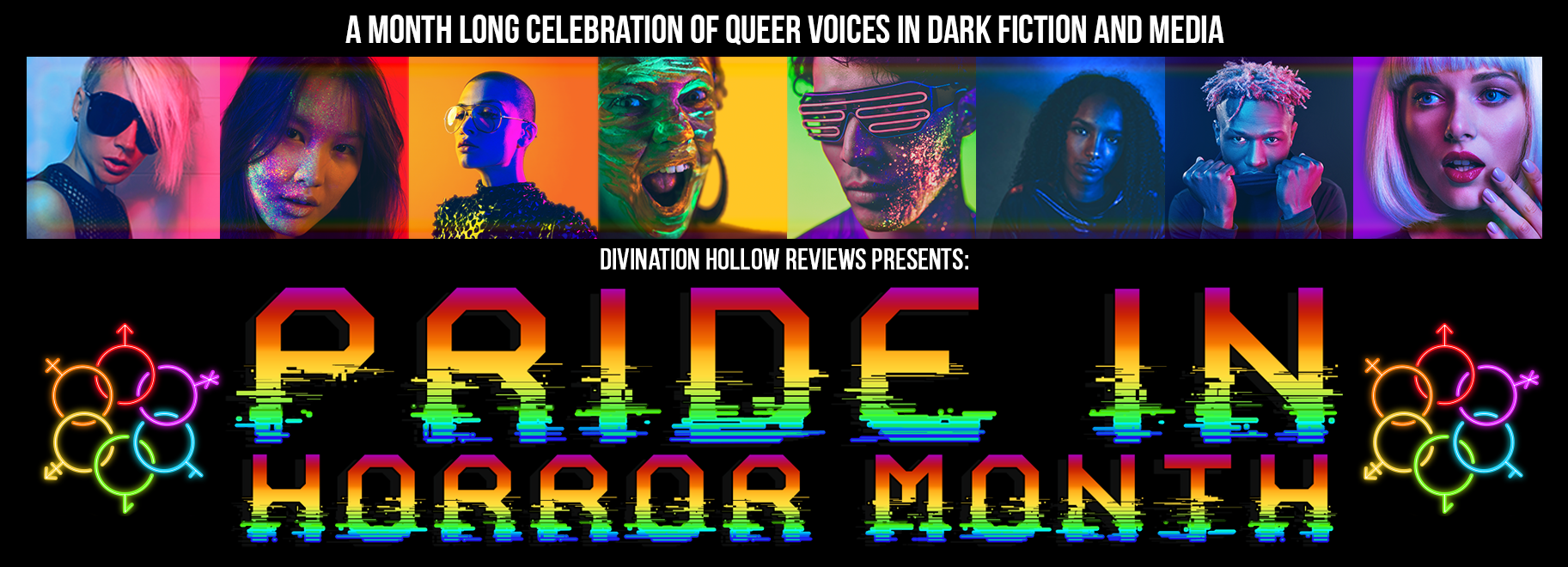PIHM Short Story: Beloved, Part One by Kody Boye
My Beloved.
We once wrote, in our vows on our wedding day, that we would live our lives ‘til death do us part.’ For most, this would seem like an obvious statement—because in the grand scheme of things, many would say there is no greater power than love.
But illness, they forget, is always around every corner. Watching. Waiting.
So on this night I wish I could forget, but know I will always remember, I think of those days fondly—before the diagnosis. Before the illness.
Before the bruja.
“I have to go somewhere,” I told Paul that fateful Sunday morning. “I promise I’ll be back as soon as I can.”
He was between the realms of sleep—possibly listening, but probably dreaming. He nodded an affirmation, mumbled a short uh huh, but beyond that, I could get nothing out of him. The cancer was taking a lot out of him, and though I wanted nothing more than to reassure him that everything would be fine, that everything would be okay, I couldn’t. So, instead, I simply leaned down, pressed a kiss to his stubbly cheek, and rose before turning to make my way out the bedroom door.
I was but a specter of my former self, a phantom of the man I used to be.
And now I was reaching for my last straw.
Walking from our home, and climbing into my truck, was a feat almost impossible, considering how tired I was. My eyes hurt. My back ached. My legs felt impossibly weak. Worst yet: I felt I would break at any moment. But with the knowledge that I could only meet with her this one time more than present in my mind, I leaned back in my seat, took a long, deep breath, and twisted the key in the ignition.
Then, I started to drive.
The nurse had been the one to tell me about her. You were calm, stoic, tall as a man could be in your situation, braving the world and everything in it like the warrior you’ve always been. But me? I was a wreck. I couldn’t contain myself after the doctor had delivered the news, and as a result, had fled the room when he said it was terminal, that you only had three months to live.
I was beyond myself with grief.
Three months? I thought. Just three months? How could anyone survive this news, let alone live with it?
I’d taken off down the hall, marching like a wounded soldier on the plains of battle, flashbacks of our loving past bombarding my mind, when she’d taken a hold of my arm—this nurse who seemed older than time, but was so awfully kind.
She’d told me not to give up hope. That there were always miracles that could be found.
I asked, “How?”
And that was when she told me about the bruja.
She lived in a small home at the edge of the Rio Grande Valley, in an area by the ocean on the outskirts of Brownsville. Cradled in the heart of the Gulf of Mexico, this place should have been beautiful. But making the hour long drive from Edinburg left me feeling small, weak, and filled with possibilities. I thought, How? I thought, How could she? And I thought, Is this real? So many questions ran through my mind, and yet, the more I thought about it, the more I realized just how desperate I was.
How could I, a man of thirty-five, believe in witchcraft?
“There are miracles in low places,” the old nurse had told me. “Not all is as it seems.”
She’d scribbled an address, and the word bruja, on a piece of paper, and passed it into my hand. Then, the nurse had walked off.
Even now, as I approached the home at the edge of Laguna Vista, I found myself dreading ever coming here. Ever allowing myself to believe. Ever offering myself false hope. But I’d already made the drive, and there was no point in turning back now.
I parked at the edge of the drive. Carefully crawled out of my vehicle. Took care to loop my messenger bag over my neck, and tucked it against my side. I looked up at the small, nondescript home, and breathed in not only the smell of freshly cut grass, but salt from the ocean.
I started up the drive.
Halfway there, I paused to reconsider what I was doing, and inhaled a long, deep, desperate breath of air.
You need to get it together, I thought. Think of what you’re doing to yourself. To him.
But that was the thing: I hadn’t done anything. I’d been so powerless to the aspects of nature, the laws of biology, and all I’d done was sit by for the past month and watch my husband’s health deteriorate. At least here I could say I was doing something. That I had done something.
I swallowed the lump in my throat, and lifted my head to look at the house once more, when I saw the curtains whisper first in, then out of place.
I only briefly hesitated before starting up the drive once more.
At the door, I took a moment to compose myself—to allow my body, my mind, and, I feel, even my soul, the opportunity to prepare for what was to come. Then I leaned forward and knocked on the door.
A moment passed, then two. A third and a fourth followed.
This is ridiculous, I told myself. How is this—
I was just about to turn back when the door opened, and a small, Hispanic woman looked out at me. “Can I help you?” she asked.
“I—” I started. “I don’t—”
She offered me a calm, yet unsure look that instantly made me feel small.
Ask what you came for, a part of me whispered. You came all this way. You can’t turn back now.
“Are you—” I started, then swallowed. “The… The…”
“The what?” she asked.
“The bruja?”
She blinked, possibly stunned, possibly not. She looked from me, to my bag, then to me once more, before opening the door and saying, “Come in.”
I stole inside with the urgency of someone lost, of someone afraid of being found, and only lifted my eyes when the sound of the door being closed entered my ears.
She turned her head to face me—her dark eyes suspicious, her lips curled into a frown. “Be quick,” she said. “I don’t have time to dawdle.”
“I—” I started. “I don’t—”
She narrowed her eyes, and a sigh escaped me, so painful that I felt I was breathing in glass.
It was that point that I said: “I need your help with something. My… my husband. He’s… dying, and… and—”
“And… what?” the woman—this so-called bruja—asked. “You came to me for help?”
“Yes, ma’am. I—I did.”
“Who sent you?”
“A woman from the hospital. She gave me your name, your address, said that you could help. Please,” I then said, and took a hesitant step forward, “I’m begging you. I can’t lose him. I can’t lose Paul.”
“Tell me what’s wrong.”
“He has cancer. Terminal cancer,” I added. “He… he isn’t expected to make it past December.”
“And you came to me for help,” she replied. “Because you believed I could do something for you.”
A short, careful nod was all I could offer.
The woman sighed, and turned her head to look out at the sunshine, whose mere existence was threatened by the clouds rolling in from the Gulf. She stared for several long moments, during which my heart pounded, my mind racing.
What if she can’t help me? What if she can’t help Paul?
No, I concluded. I couldn’t believe that. Wouldn’t believe that. I hadn’t come all this way for nothing.
When the woman turned her head to look at me, a small part of me lost hope.
“I can help you.”
I opened my mouth to speak.
“However,” she said. “Magic is… a fickle thing. It does what it wants, how it wants, in what ways it wants. I cannot guarantee a particular outcome.”
“Please,” I said. “I’ll do anything. I’ll… I’ll pay you anything you want. Just help my husband. Please. I’m begging you.”
“I don’t want your money,” the woman said, before reaching out to take my hand.
I could not tell whether the jarring sensation of loneliness was the shock of being touched by her cold palms or an actual spell taking hold of me. Either way, I watched as she closed her eyes, as she took a deep breath, as she mumbled in a language I did not know.
When she opened her eyes to look at me, a spark of hope rushed through me.
“Did you—” I started.
But the woman only replied, “I have done what I could. Now, please. Leave me be. I’m expecting company.”
She turned, opened the door, and ushered me out with a wave of her hand.
The only thing I could do, in response to all my inner turmoil, was cry.
I wasn’t sure what to expect as I made the return drive from Brownsville to Edinburg. A part of me feared her magic would be for mercy, and that, upon returning home, I would find you already gone. You’d been sick for so long. Had complained of head and body aches for countless days, many weeks. The cancer would spread, the doctor had said, even if we attempted treatment. So we’d done what you asked to and had gone home and I, with fear in my heart and loss in my veins, had prayed for the unthinkable.
Little did I know that things would change so quickly.
I stepped into our small home with regret not just for my actions, but my belief. Fearing, beyond all measure of a doubt, that I had done something wrong, I lingered near the doorway for quite some time, my bag in hand, my heart beating on my sleeve. I found myself asking, “Did I do the right thing?” But the truth was, I should have been questioning my sanity.
I’d been gone for nearly three hours, and Paul would likely be awake, wondering where I was, what I’d been doing.
I had just turned to hang my bag up on the rack beside the door when the sound of footsteps entered my ears.
“Paul?” I asked, almost fearfully at that. “Is that… is that you?”
The footsteps stopped a moment later.
Frowning, I stepped forward, an apprehension tugging at my gut, at my thoughts. He’d been so sick, and so weak, I feared him going beyond the master suite. If he were walking around—possibly due to medication-induced delirium, or simply because he was confused—then there was a distinct chance he could hurt himself.
That sole thought spurred me through the house.
I rushed through the living room. Past the kitchen. Down the hallway that led to the bedrooms. I barely acknowledged when I stumbled over the rug stretched across the hallway, let alone when I broke my fall by extending my arms to catch myself on the wall opposite the master bedroom.
“Paul?” I stepped forward. “Are you all right?”
No response.
I didn’t hesitate to hurl the door open.
I expected to see him on the floor, eyes wide, mouth agape. Instead, I saw him sitting at the edge of the bed, gazing out the window, at the sunshine quickly being chased away by storm clouds. He turned to face me, ever so slowly, and though I could never forget his beautiful, almost crystal-blue eyes, pain and illness had dulled them—at least, until that very moment, when I looked upon him in that fading light, that blessed afternoon.
I asked, “Are you all right?”
“I’m… fine, Jake. I… I feel better than I have in a while, actually.”
A thought occurred to me while looking into his blue eyes, in looking upon his restored complexion, in seeing that he appeared, in many ways, completely normal.
Is this it? Did her magic really work?
Paul stared at me, and I at him.
When it became apparent I would say nothing, he frowned, and asked, “Are you all right?”
“I’m okay,” I said. “I’m just… just taking a moment.”
“To what?”
“Be thankful.”
He extended a hand toward me—
And though a million thoughts threatened my ability to comprehend the reality of the situation, I reached out and pressed my hand against his.
Only when our fingers laced together did I close my eyes.
A part of me wanted to believe your sudden recovery was the result of a miracle—of something given by God, or maybe delivered by one of His angels. The fact was walking through that door, and seeing you sitting on our bed, bright-eyed and with warmth in your cheeks, left me with a feeling I could only describe as euphoric. My husband, the love of my life, looked better than he had in weeks.
But I knew it was not something that I, or you, or even medicine had done.
No.
It was the result of magic.
A part of me grappled with this for the longest time, during which I watched you living, watch you breathing. With my hand on your back, I could measure the strength of your breaths, the warmth of your skin. You had, undoubtedly, made a turn for the better.
I couldn’t have been happier.
Paul continued to improve at a dramatic rate.
In less than a day, he was eating as he used to.
In three days, he was walking around the house.
In a week, he asked if we could go out and see friends.
But I knew, beyond a shadow of a doubt, that simply going out and seeing friends would likely draw confusion, desperation, maybe even suspicion. He was scheduled to meet with his cancer specialists on the eighth day following my trip to Brownsville; we were meant to discuss hospice care and all that would entail.
“I feel fine,” Paul said not long after we climbed into the car. “I told you, I think I’m making a turn for the better.”
“But you still need to go to the doctor,” I said, and paused. “We still need to make sure things are arranged as they should be.”
“Do you think I’m still dying?”
“I… I don’t know.”
The spark in his eyes flickered out, much like a lightbulb at the end of its lifecycle. On one hand, it was disconcerting, seeing him go from A to Z so quickly. On the other, I had to tell myself to keep being realistic.
If Paul really was still sick… and if what that woman, that bruja, said was true, then I had to prepare myself for anything.
I couldn’t have anticipated what would come next.
They scanned his body from head to toe—did MRIs, CTs, ultrasounds, and more. They took blood after noting Paul’s unusually colorful complexion, and later that afternoon, we met with the cancer specialist, a man by the name of Doctor Elliot Monroe, who entered the room with a look of concern on his face, a look of awe in his features.
He said, “Hello, Paul.”
Paul said, “Hello.”
“Jake,” the doctor then said, and nodded to me when I nodded back. “I hope you both are doing well.”
“We’re doing great,” Paul said, tightening his hold on my hand. “Aren’t we, Jake?”
“We are.”
“I’m happy to hear that,” the doctor said, before settling down in a rolling stool and tentatively approaching us, with hesitation I knew was likely the result of nerves. “I reviewed your scans today, and your bloodwork.”
“And?” Paul asked, in a way far more direct than it had been in previous visits.
“I… I really don’t know how to explain this.”
“Explain what, Doctor?”
“Unless there’s been a mix-up… and there doesn’t appear to have been… your cancer is… well… shrinking.”
“Shrinking?” Paul asked.
Doctor Monroe nodded. “Yes. Shrinking.”
“What does that mean?” I asked.
“It means we need to run more labs. Do more tests.” Doctor Monroe lowered his eyes to the lab paperwork once more. “Be honest with me, have you done anything differently? Have you seen other doctors? Gone over the border? Tried any experimental treatments?”
“No,” Paul said. “I haven’t.”
While the doctor continued to grill Paul with questions, I remained quiet. I noted, rather appropriately, that I was being left out of equation entirely. And honestly, I couldn’t blame him.
Doctor Monroe was convinced something miraculous had happened—that somehow, someway, Paul’s body had started to fight back against an aggressive, stage 4 cancer that had been slowly taking over his body.
What neither of them knew was that something even more miraculous than human biology had taken place.
What neither of them knew was that the bruja’s magic was healing Paul.
We went to dinner after completing the rests of Doctor Monroe’s tests. Drove home. Watched a movie. Made love on the couch. It was an act that felt just as beautiful as it was blissful, as blessed as it was breathtaking. It was, as anyone would have seen fit to describe, a perfect night.
While lying there—you in my arms, me propped back against the couch—I stared at the revolving ceiling fan, and found myself wondering how life would proceed from this point forward.
It seemed too good to be true. Magic, I’d always been told, didn’t exist.
But there we were—there you were—a modern miracle, slowly recovering from incurable cancer.
There was no denying that we were blessed, and though until that moment a part of me had feared something horrible would happen, that some curse of luck would come crashing down upon us, I found my worries slipping away.
The bruja’s magic had worked.
You were getting better.
Life was going to be great again.
The next few weeks passed in a blur. Paul’s tests came back great, and repeated scans showed the tumors shrinking, ever so quickly, until, finally, Doctor Monroe made a declaration we thought we’d never hear:
Paul’s cancer was gone.
Not there, just gone.
Lab work, scans, and even a biopsy of previously disease-ridden tissue determined there were no longer any cancerous cells in his body.
The doctors were calling Paul a miracle case.
But I knew, without a shadow of a doubt, that it was not just a miracle that had cleansed my husband’s body, that had erased, in fine detail, all aspects of his disease.
Leaving the hospital that fateful day almost three weeks after Paul was sent home to die, left me in a state of shock, of awe, of bliss.
Paul said, “I can’t believe it.”
And I replied, “Neither can I.”
“What happened, Jake?”
“What do you mean?” I asked, turning my head from the driver’s seat to look at him.
“They sent me home to die, and now… now I’m better.”
“Should we really question it?” I asked, reaching down to take hold of his hand. “You’re better now. Better than you were before. Maybe we should just take it for what it is—a miracle.”
“A miracle,” Paul said, and turned his head to look out the window.
As I twisted the key in the ignition, I allowed myself a moment to take a deep breath, then pulled out of the parking spot. Peering over my shoulder, I saw Paul reach up and take hold of the small silver cross dangling from his neck. He’d taken to wearing it over the past several days, especially as his recovery continued to progress, and though I knew that his religious days had been behind him for quite some time, the fact that he was wearing it now was enough to give me pause.
It’s because you know God didn’t do this, a part of me offered. You know it is.
Yes. I knew that. I knew that for a fact.
No matter how much I wanted to think otherwise, there was no denying what had happened.
God hadn’t saved Paul’s life.
No.
The bruja’s magic had.
Kody Boye is a young adult horror, science-fiction, and fantasy author living in the Rio Grande Valley of South Texas. He is the author of the When They Came and The Beautiful Ones trilogies, as well as the Red Wolf Saga and The Scarlet Jane Files. When not writing, he enjoys playing video games and with his cats. You can find him online at www.kodyboye.com.



